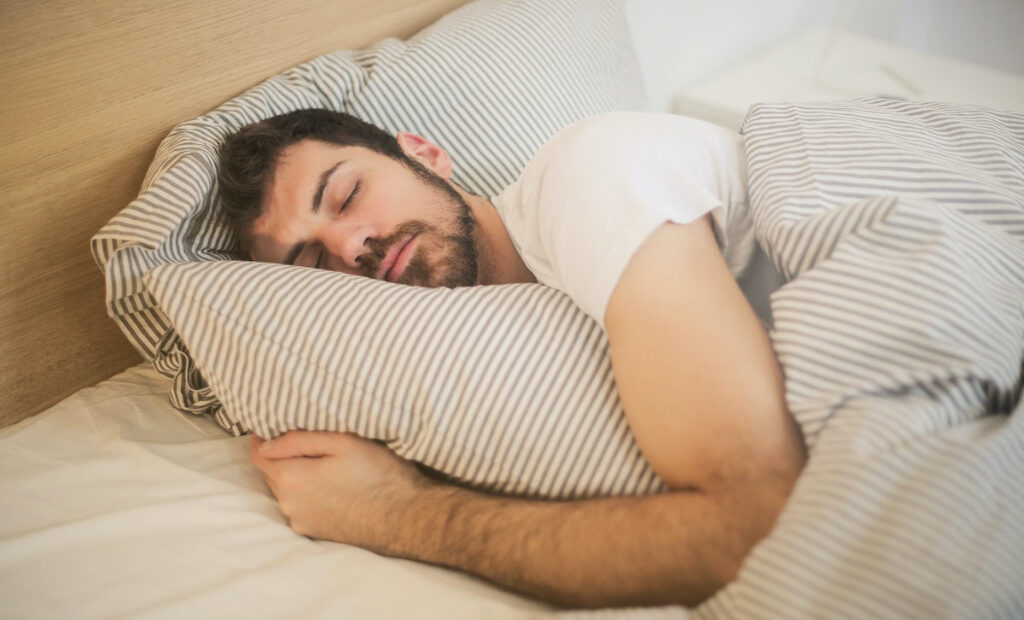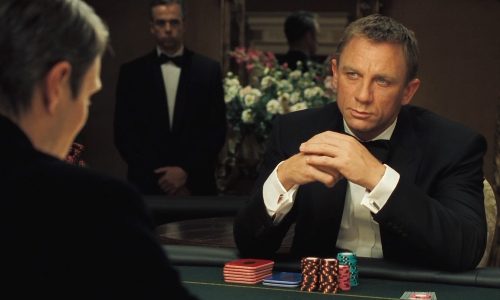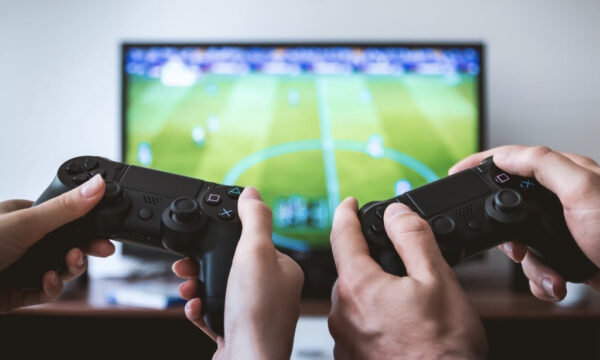Ten tips to help gamers manage their sleep schedules

Every gamer under the sun (or moon!) has been there: one more round of CS:GO, the LoL match is scheduled late, a few more turns of Civ., they’ve just found their stride in CoD… Whatever the game, for serious players, maintaining a healthy lifestyle and getting enough sleep can be challenging.
The tendency for gaming to interfere with sleep routines is not uncommon. With multiple studies showing the ill effects of pre-bed gaming, it’s important to strike the right balance and ensure late-night sessions are not hindering quality sleep. And as pro-gaming becomes more and more prevalent – with training sessions lasting 12 hours or more – the importance of sleep is vital to a team’s performance.
Whether a pro gamer, someone on their way, or simply a casual fan of video games, for anyone who finds themselves feeling groggy the day after a night of playing games or having trouble staying asleep, here are ten tips for getting better quality sleep and maximising gaming performance:
Avoiding blue light
Almost all the screens emit blue light, from TVs to phones. But the large, bright screens of gaming monitors are especially likely to affect sleep quality. This is because blue light decreases the body’s melatonin production, which is responsible for regulating the sleep/wake cycle.
While blue light isn’t exclusive to electronic devices (after all, most people are exposed to it all day from the sun’s natural light), over-exposure to it is known to prevent a good night’s sleep, as well as contributing to other negative health effects such as:
disruption of circadian rhythms
higher risk of depression
eye strain
potential for permanent eye issues
The best way to avoid the risks of this form of artificial light is to use something to block blue light emanating from computer screens.
Many monitors have a blue light filter feature built in, but a good fallback is to use f.lux, which can be set to come on at certain times and adjust intensity based on the time of day or what game is running.
Another option is blue light-blocking glasses, used in competitive gaming, which target specific wavelengths known to affect the circadian rhythm and prevent deep sleep.
A reliable sleep schedule
While tournament schedules, gaming house life, and timezone differences make it difficult for pro gamers to get early nights, going to sleep at the same time every day is vital.
While pre-midnight bedtimes are ideal for hormone balance, a daily routine that has a regular time for sleeping is crucially important to things like the brain’s cognitive function, which greatly affects gaming performance.
While some leeway is fine, it’s important to keep to the same time every night as much as possible. And that goes for weekends too. By making oneself go to bed at a regular time, it’s possible to plan days and evenings a lot more efficiently, allowing more time for a good balance of gaming and other activities.
Regular exercise
Aside from building bone density, preventing stress injuries and fending off illnesses that prevent competing in esports, exercise is also a great way to try and fall asleep faster. Research shows that moderate aerobic exercise increases the amount of deep sleep one gets, resulting in feeling refreshed for the next set of scrims and competitive matches.
As well as making it possible to play better, exercise helps stave off insomnia – something many gamers are familiar with. Lying awake in the early hours staring at the ceiling reliving the last few matches is a sure-fire way to hit that snooze button the next morning and ruin a sleep/wake cycle.
The time of day matters, too. Some studies show that early morning aerobic exercise, like jogging, increases the amount of quality sleep gained later on. This also fits best into the pro gamer lifestyle, with most competitive games being in the afternoon and evening.
Relocating the gaming machine
While not practical for everyone, ideally the machine for playing games on should be away from the sleeping environment.
Having the PC, Playstation, or Xbox in a dedicated space for gaming, not only makes it easier to monitor screen time, but also makes the bedroom an escape from the competitive environment. This not only will help improve sleep but will aid overall health by allowing for relaxation in a stress-free environment, thereby decreasing any trouble falling asleep.
Not everyone can physically remove video games from their sleeping space, but a practical alternative is to set the router to block Internet access to the machine at the time designated for sleep. This has a similar effect to removing the machine from the bedroom by rendering it unplayable while sleep is prioritised.
The importance of deep sleep
To play at one’s best, good quality sleep is paramount. It’s not simply a matter of getting enough hours of sleep throughout the day, either. Recent research has shown that deep sleep – which comes after the dreaming REM stage – is vital to the brain’s detoxification and gamers’ reaction times.
During deep sleep, neural glial cells drastically shrink. This shrinkage then allows spinal fluid to effectively “flush out” the buildup of toxins that forms over the period of a day. The sleep deprived are basically suffering from not allowing this process to happen during sleeping hours.
To avoid fragmented sleep, it’s essential to ensure mobile phones are on silent, the alarm is set correctly, and any possibilities of disturbance are reduced.
Avoiding energy drinks and caffeine
While energy drinks, such as Monster, have been a mainstay of esports for a while now, giving pro gamers a competitive edge, their use should be moderated. In fact, all caffeinated beverages can affect sleep quality, including coffee and tea.
Clearly, these drinks can give a boost of energy and help stave off sleep, but not many users actually know why. The reason is adenosine, a molecule that binds to the receptors in the brain. As a critical amount of these molecules become bound to the brain, one experiences sleepiness. Caffeine blocks adenosine molecules from binding, delaying sleepiness.
This effect can be useful. For a late-night match that requires continued alertness, an energy drink or coffee is a godsend. However, problems occur when users start sipping these caffeinated drinks every day, making them part of their usual routine.
Outside of the times when that extra boost is needed, limiting caffeine consumption to the mornings is the best solution as it can stay in the system for over six hours, affecting sleep.
At least six hours of shuteye every night
Because everyone is biologically slightly different, different amounts of sleep suit different people. The eight-hour sleep advice is a bit of a myth – the real amount of sleep needed is whatever allows one to feel refreshed and, importantly to those who play games, allows one to react quickly to the environment. Those who feel good during the day and perform well in their games have probably slept enough.
A good rule of thumb is to aim for at least six hours. This duration allows for multiple cycles of REM/NREM sleep before waking. While some people can get by just fine on less, aiming for six hours of sleep or more is enough to ensure the brain can detox, thereby not allowing any negative effect on gaming performance.
Sleep hygiene
While all of these tips pertain to sleep hygiene, understanding the overall concept is important in order to avoid bad sleep affecting physical health or performance in games. The term encompasses all the elements that impact sleep and the ways in which one can improve sleeping and waking hours as a result. Importantly, this includes the ability to concentrate and focus – something pro-gamers need to do.
Aside from the factors already discussed, gamers should also consider:
Finding an ideal bedroom temperature
Keeping the bed clean and ready to use
A firm mattress that gives proper support
Having a bedtime “ritual” of showering, brushing teeth, etc
With studies showing excessive game-time is associated with improper sleep practices, it’s important to be observant of one’s own behaviour. Not only will this facilitate waking in the morning more refreshed, but the entire day will improve if a little time is spent maintaining sleep practices.
Stopping play at least 30 minutes before bedtime
Going straight from a clutch game to trying to fall asleep is not a great idea. Combine that with the effect of blue light messing with circadian rhythms, and anyone would have trouble keeping to healthy sleep practices.
Overall quality of sleep will improve by turning off the games machine at least a half hour before sleep. A night of intense matches is hard to unwind from, so allowing some breathing room to unwind and relax will decrease the chances of insomnia, maintaining sleep patterns and allowing optimal refreshment for the next day – whether for games or a day off to enjoy other activities.
Melatonin supplements
For some gamers and those with melatonin production issues, sleep just doesn’t come easily. Playing video games is often a way for people like this to fill the long nights, until sleep eventually overwhelms them or the morning comes. To overcome this, many have had great success with supplementing additional melatonin, which can help “cue” the body for sleep.
Taken sparingly, melatonin supplements can alleviate some of the problems of pre-bed screen time and light that can affect circadian rhythms. It is also handy to help gamers to adjust to a new sleep and wake routine and find a good balance of competition and sleep.
Hopefully, these ten tips offer some guidance to find a healthy balance between playing and getting a good night’s sleep. By not depriving themselves of quality rest gamers can ensure that they are performing at their best and doing everything they can to stay on top of their game.
The editorial unit

























Facebook
Twitter
Instagram
YouTube
RSS